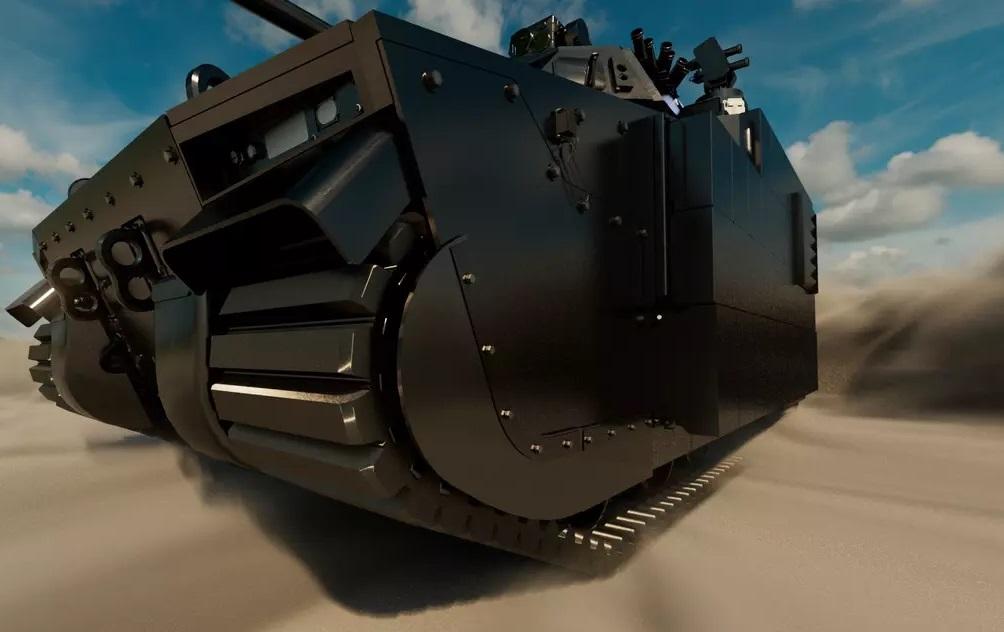BAE Systems is teaming with Elbit Systems of America, Curtiss-Wright Corporation, and QinetiQ Inc. on its design for the U.S. Army’s Optionally Manned Fighting Vehicle (OMFV). The companies will work together to produce an innovative, purpose-built, next-generation combat vehicle designed to meet the U.S. Army’s requirements for an agile, lethal, and survivable solution that will help redefine land combat operations and maneuverability in future conflicts. The proposal was submitted to the U.S. Army earlier this month and today, BAE Systems announced details of how the companies are collaborating. BAE Systems already has the expertise, infrastructure, and resources to deliver results for the U.S. Army’s OMFV platform, with plans to complete project elements at facilities across the U.S. that contribute a diverse set of workforce talent and manufacturing quality.

“The synergy from our diverse and highly capable team allows us to deliver the next-generation, transformational technology and capabilities our customer is looking for. Together we have continually researched, developed, innovated, and delivered and we believe this team can provide a purpose-built vehicle with the winning solutions for future battlefields and, most importantly, for the men and women who put their lives on the line for us each and every day,” said Andy Corea, vice president and general manager for BAE Systems Combat Mission Systems.
The OMFV design will use a standardized, Modular Open Systems Architecture (MOSA), designed by BAE Systems and Curtiss-Wright Defense Solutions. MOSA solutions are critical for enabling the customer to rapidly refresh technology to field new capabilities and meet emerging threats on the battlefield. The two companies are also providing vital electronics and control systems into the OMFV.

BAE Systems and Elbit Systems of America are leveraging their extensive experience in the evaluation, demonstration, and validation of next generation combat systems. For OMFV, Elbit is providing its 50mm Unmanned Turret (UT50), one of the most versatile armament configurations with multiple mission payloads and capabilities, which recently completed a successful live fire demonstration at the Aberdeen Test Center. The UT50 features a XM913 50mm cannon and a high-capacity ammunition handling system.
BAE Systems has invested in and collaborated with industry for more than 40 years to advance Hybrid Electric Drive (HED) technology. BAE Systems and QinetiQ Inc. are developing and integrating the HED technology with an electric cross-drive transmission, a key component of an HED system for tracked combat vehicles, to ensure the OMFV has the speed, reliability, and maneuverability necessary to dominate in the toughest battlefield conditions. QinetiQ Inc.’s Modular E-X-Drive® transmission has been tested and proven in a wide range of tracked vehicles and weight classes over the last decade.

The Optionally Manned Fighting Vehicle (OMFV) is a U.S. Army program to replace the M2 Bradley infantry fighting vehicle. OMFV is one part of the Next Generation Combat Vehicle portfolio of programs. After the cancelation of the Ground Combat Vehicle in February 2014, the Army’s M2 Bradley replacement effort was restarted under the Future Fighting Vehicle (FFV) program. FFV was a research and development program to develop notional plans for IFVs. In July 2021, the U.S. Army awarded contracts to five teams: Point Blank Enterprises, Oshkosh Defense, BAE Systems, General Dynamics Land Systems and American Rheinmetall Vehicles. The total value of the contract was $299.4 million. Teams will develop concept designs during the 15-month long phase. All entries had to meet three general criteria: a tracked vehicle with a hybrid-electric drive; an unmanned turret housing a 50 mm autocannon, or a 30 mm turret with the ability to upgrade to the larger caliber; and a reduced crew of two with space to carry six infantrymen. The Army plans to pick three teams to move on to building prototypes by mid-2023.












